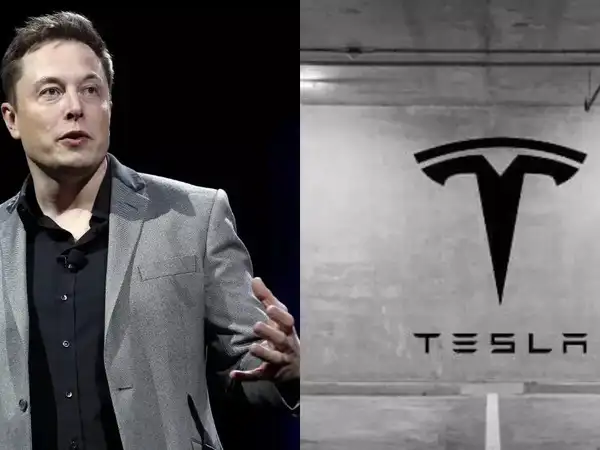Copyright breezyscroll

Tesla shareholders are preparing to vote on a $1 trillion pay package for Elon Musk, a deal that could make him the world’s first trillionaire. Supporters say it’s a fair reward for Tesla’s growth. Critics call it a symbol of runaway inequality at a time when global poverty remains stubbornly high. The debate raises fundamental questions about wealth concentration, corporate power, and what societies value most: innovation or equity. What’s at Stake in Tesla’s $1 Trillion Vote? On Thursday, Tesla shareholders will gather in Texas to decide whether to approve what could become the largest executive compensation package in corporate history. The deal, valued at roughly $1 trillion over ten years in shares and stock options, would nearly double Musk’s 13% ownership stake in Tesla, pushing him closer to complete control of the company he has built into a global tech and auto powerhouse. To put that figure into perspective: $1 trillion exceeds the GDP of 170 countries, including Singapore, Switzerland, and the UAE. It’s also more than double what the United Nations World Food Programme estimated it would cost to end world hunger by 2030. Critics say that contrast tells you everything you need to know about how distorted global wealth distribution has become. A Windfall That Could Reshape Corporate Governance If approved, the package would make Elon Musk the first trillionaire in history, setting a precedent for corporate pay structures. Activists argue it’s a dangerous one. Wealth equality groups have called the proposal “staggering” and “morally indefensible,” noting that Musk is already worth around $500 billion. According to Forbes, the world’s ten richest people collectively hold nearly $1.7 trillion, while global poverty rates have barely budged in three decades. Meanwhile, Tesla maintains that the deal is “performance-based,” structured around twelve milestones linked to market capitalization and profit. If Tesla hits those targets, it would be valued at $8.5 trillion, with an annual EBITDA of $400 billion. Supporters say Musk’s leadership is crucial for reaching those ambitions. “Without Elon, Tesla could lose significant value,” Tesla Chair Robin Denholm told shareholders, describing Musk as the “transformative force” behind the company’s vision of reimagining mobility and energy. The Inequality Equation: Trillionaires vs. the Rest The optics, however, are impossible to ignore. According to Oxfam’s 2025 report, billionaire wealth increased by $2 trillion in 2024 alone, while poverty levels stagnated at roughly 9% worldwide. The richest 1% now own more than 45% of all global wealth, creating what campaigners describe as “a tale of two worlds.” That tale is not just about numbers; it’s about power. As more wealth accumulates in fewer hands, billionaires increasingly influence public policy, technology, and even space exploration. The possibility of trillionaires, Oxfam warns, could deepen inequality to levels “previously thought unimaginable.” A useful visual here would be a chart comparing the growth of billionaire wealth versus global poverty rates since 1990, highlighting how the lines have barely intersected. Why Musk Says It’s About Control, Not Cash When asked about the massive payout, Musk’s response was characteristically cryptic. “It’s not like I’m going to spend the money,” he said on a conference call reported by AFP. “It’s just if we build this robot army, I want to have a strong influence over that robot army.” He was referring to Optimus, Tesla’s humanoid robot project, which he predicts could account for 80% of Tesla’s future value. Musk envisions a future where Tesla’s dominance extends beyond cars into autonomous systems, AI, and robotics, “the building blocks of mobility, energy, and labor,” as the company describes it. Critics, however, see the statement as another example of Musk’s fixation on control over his companies, his public image, and potentially, the direction of emerging technology. How Governments Are Responding to Runaway Wealth Across the world, policymakers are grappling with how to contain the concentration of wealth. Some countries already tax extreme wealth: Norway imposes both municipal and national wealth taxes. Switzerland, Spain, Bolivia, and Argentina have their own versions. In the United States, proposals remain mostly theoretical. Senator Bernie Sanders has repeatedly called for a wealth cap, even suggesting that the government should confiscate all wealth above $1 billion. “People can survive just fine on $999 million,” Sanders quipped during an interview on HBO Max. His 2019 presidential plan included a progressive wealth tax, starting at 1% for households over $32 million and rising to 8% for those above $10 billion. Sanders claimed it would halve billionaire wealth in 15 years. These ideas often face fierce resistance from business groups and politicians who argue they would stifle innovation and investment. Yet, as Musk’s potential trillion-dollar windfall looms, the debate over taxing extreme wealth is likely to reignite. Tesla’s Vision vs. Market Reality Despite the company’s rhetoric about innovation, Tesla faces real challenges: declining car sales, increased competition from Chinese EV makers, and skepticism from major investors. Two prominent shareholder advisory firms,=, Glass Lewis and Institutional Shareholder Services (ISS), have urged investors to reject Musk’s pay package, calling it “excessive” and “detrimental to corporate oversight.” Even Norway’s sovereign wealth fund, one of Tesla’s largest shareholders, has said no. Still, Tesla insists the structure of the deal maintains accountability, granting Musk shares incrementally as each performance target is achieved. That argument might hold weight with investors, but it does little to calm critics who see the deal as emblematic of a global system where the super-rich keep winning, regardless of outcomes. A Billion-Dollar Question for the 21st Century At its core, the debate around Musk’s compensation isn’t just about one man or one company. It’s about what societies choose to reward. Do we continue to equate innovation with limitless wealth, or do we begin to question whether a world that produces trillionaires can also tolerate persistent hunger, homelessness, and inequity? As shareholders cast their votes, the outcome will reverberate far beyond Tesla’s stock price. It could shape how we define success and fairness, in the age of artificial intelligence and automation.



